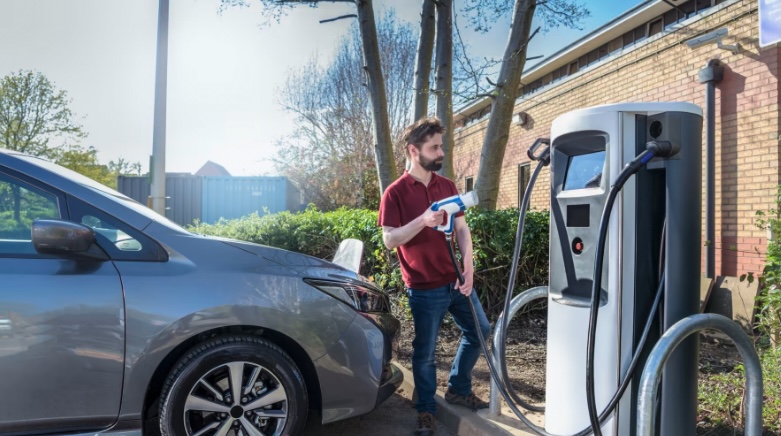Electricity costs more than petrol for drivers on long journeys, according to new RAC research

The cost of using public rapid and ultra-rapid chargers for electric vehicles (EVs) has increased by 50% since May and for some on long journeys it costs more to top batteries than it is for petrol and diesel drivers to refuel.
This is particularly concerning for drivers taking longer trips beyond their EVs’ range, who depend on these chargers to keep their vehicles powered.
According to a new RAC report, it now costs an average of 70.32p per kilowatt hour to rapid charge an EV on a pay-as-you-go basis.
This is up from 44.55p in May and 63.29p in September. The rising cost of electricity is the main contributor to these price increases.
As a result, drivers now have to pay £36 to charge a typical family-sized EV with a 64kWh battery to its 80% rapid or ultra-rapid limit, enough to cover around 188 miles. This is more than twice the cost of charging the same car at home, which costs just £17.87.
The situation is even worse for drivers using ultra-rapid chargers, which have power outputs of over 100kW and can charge many cars in a matter of minutes. These chargers now cost 74.79p per kilowatt hour, up from 50.97p in May and 63.94p in September.
Drivers using these chargers pay £38.29 for an 80% charge, a significant increase of £20.42 compared to those who can charge their EVs at home.
The high cost of rapid and ultra-rapid charging is a major concern for EV drivers, as it means that it can be more expensive to recharge quickly on a longer journey than it is for petrol and diesel drivers to refuel.
Drivers using rapid chargers pay 20p per mile for their electricity, only slightly less than those using ultra-rapid chargers who pay 21p per mile.
These costs are higher than the equivalent per-mile rate for a petrol car that achieves an economy of 40 miles per gallon (17p per mile) and are on par with a diesel car achieving the same economy (20p per mile).
In light of these findings, the RAC and campaign group FairCharge are calling on the government to cut the VAT rate charged on electricity bought at public EV chargers from 20% to 5%.
This would bring the cost of rapid charging down to 61.53p per kilowatt hour and ultra-rapid charging down to 65.44p.
The hope is that this would make EVs a more attractive option for drivers, particularly given the current cost-of-living crisis and the high price of petrol and diesel.
RAC EV spokesperson Simon Williams said:
“For drivers to switch to electric cars en masse, it’s vital that the numbers stack up. In time, the list price of new electric models will come down but charging quickly has also got to be as affordable as possible.
“It continues to be the case that those who can charge at home or at work and who don’t use the public rapid charging network very often get fantastic value – even given the relatively high domestic energy prices right now.”
“Sadly, the same can’t be said for people who either can’t charge at home or at work, or who regularly make longer journeys beyond the range of their cars. There’s no question they have to pay far more, and in some cases more than petrol or diesel drivers do to fill up on a mile-for-mile basis.”
“As last week’s new car registration figures showed, the demand for EVs is clearly there but it’s vital this is sustained.”
“Our concern is that the extremely high energy prices, which are already making people’s domestic energy bills so high, have the effect of putting people off using public EV chargers of all speeds altogether – something the Government must avoid if it expects charge point operators themselves to do the majority of the heavy lifting when it comes to installing more EV charging infrastructure.”
“Cutting the level of VAT on electricity sold at public chargers to 5% to match what people pay at home would be one way of keeping prices under control and would show the Government remains committed to doing everything it can to get more drivers to go electric.”
Sue Davies, Which? Head of Consumer Protection Policy, said:
“We know that many consumers want to make the switch to electric vehicles, and lower running costs have long been part of the appeal. But the rising cost of electricity could jeopardise more people opting for electric cars.”
“Which? found that the upfront cost of buying an EV is the greatest barrier preventing drivers from considering one – and expensive running costs could further prevent people from choosing an EV.”
“However, our research found that, for people who are able to charge an EV from home, electric cars are still generally cheaper to run than petrol and diesel equivalents.”
“Charging at home won’t be an option for everyone, so it’s important that governments work with industry to develop and support solutions that enable people using public charging points to pay comparable rates.”
Founder of the FairCharge campaign Quentin Willson said:
“While affordable home charging remains a real incentive for British drivers to go electric, we remain concerned that the small but significant proportion of drivers without access to private parking are doubly disadvantaged by more expensive charging costs and an added tax burden.”
“This archaic VAT policy means that those without home charging pay four times the rate of tax as those charging at home – the Government should set this right, not simply out of sheer unfairness but also to ensure public charging remains an affordable option for all drivers as we seek to bring down air pollution and decarbonise our roads.”
[Image: RAC/Getty]
Spotted something? Got a story? Email: [email protected]
Latest News
